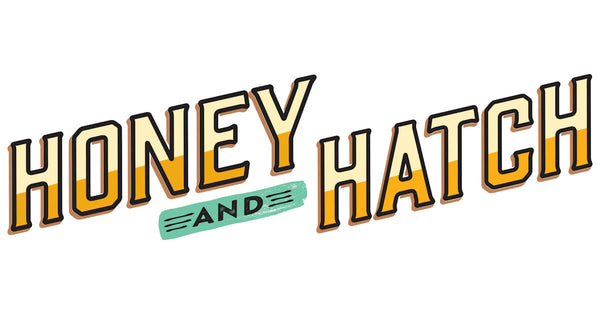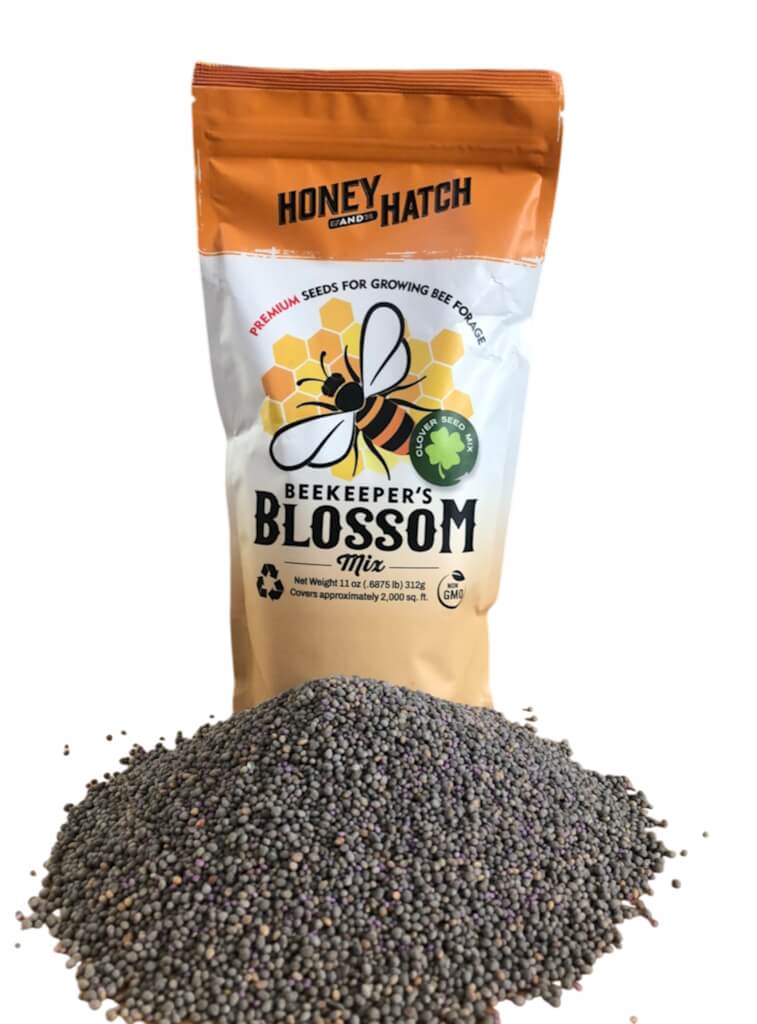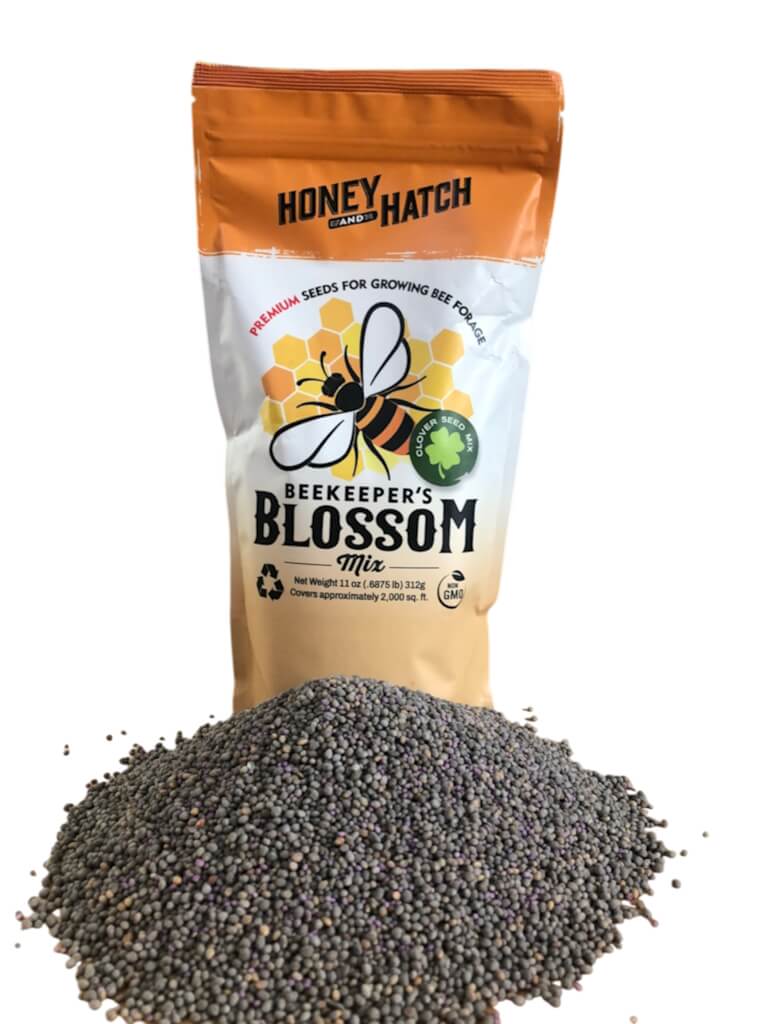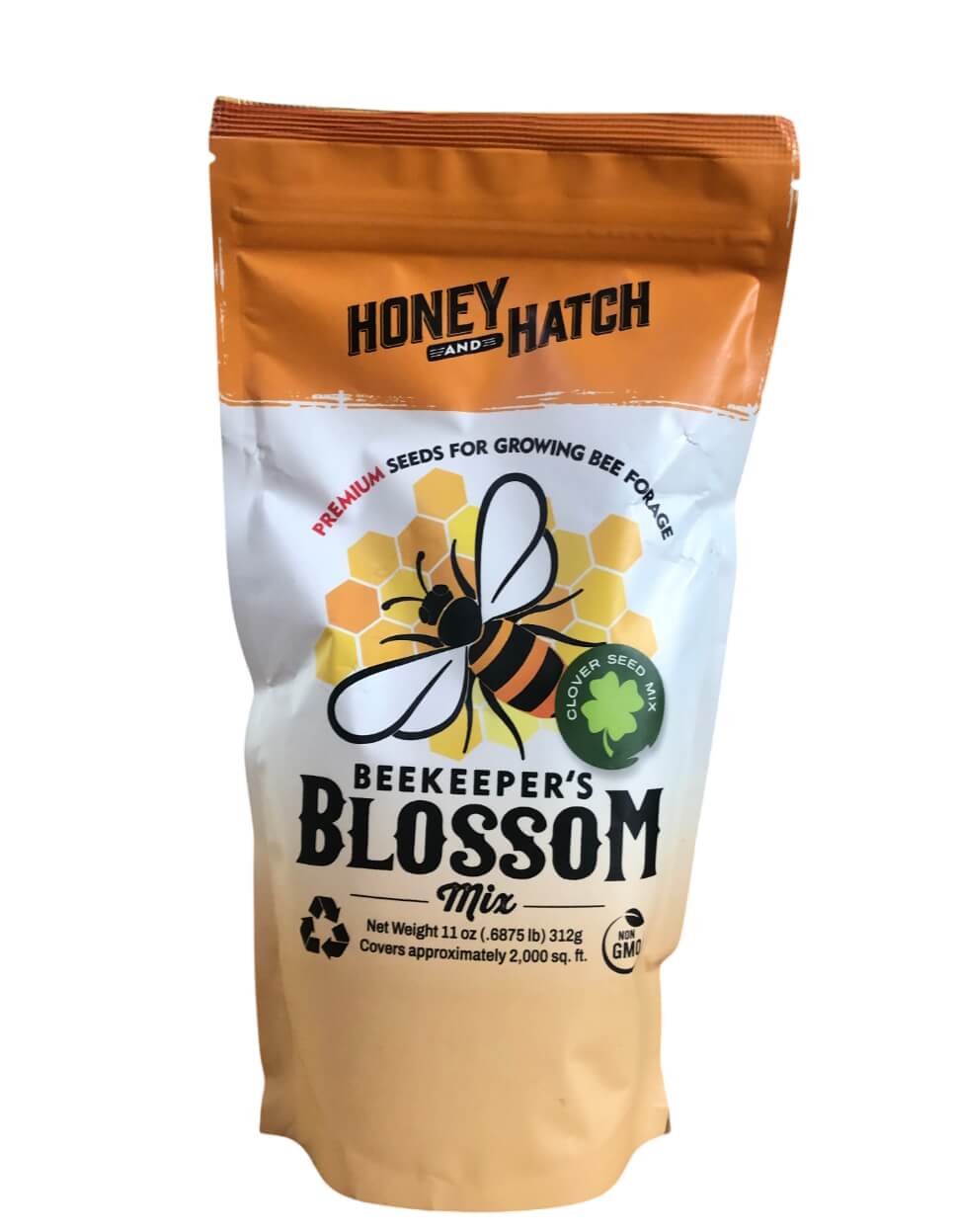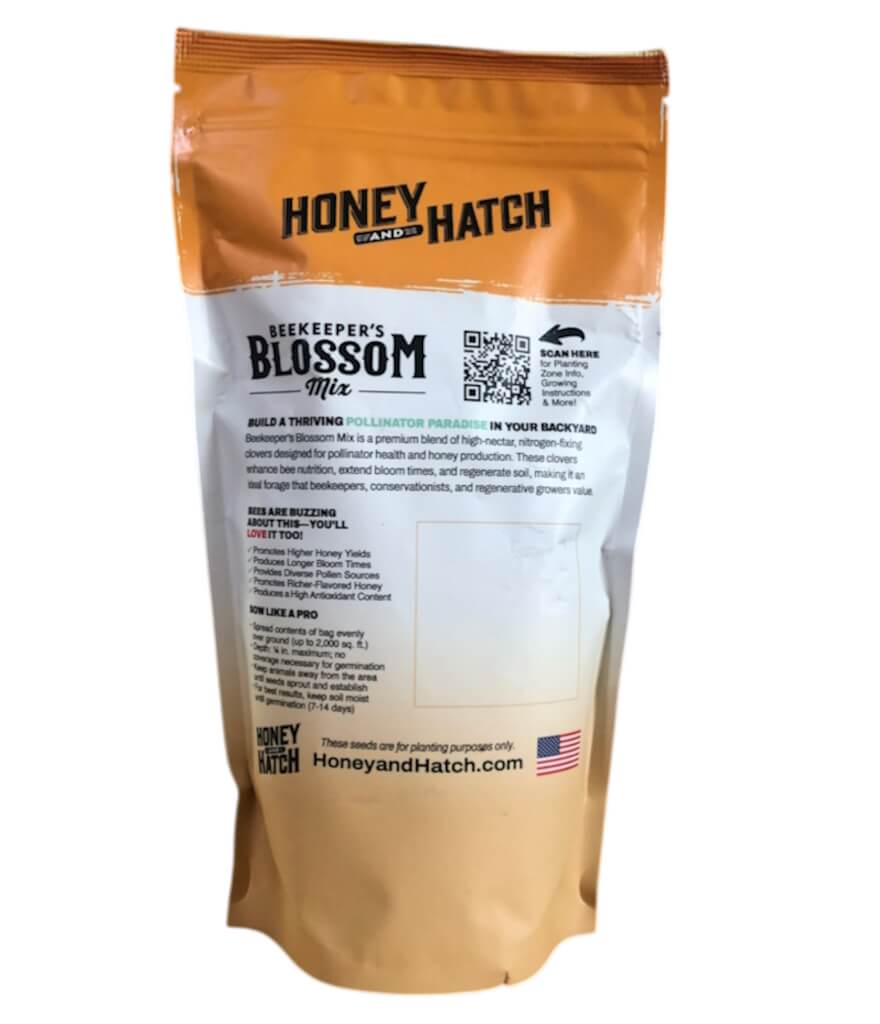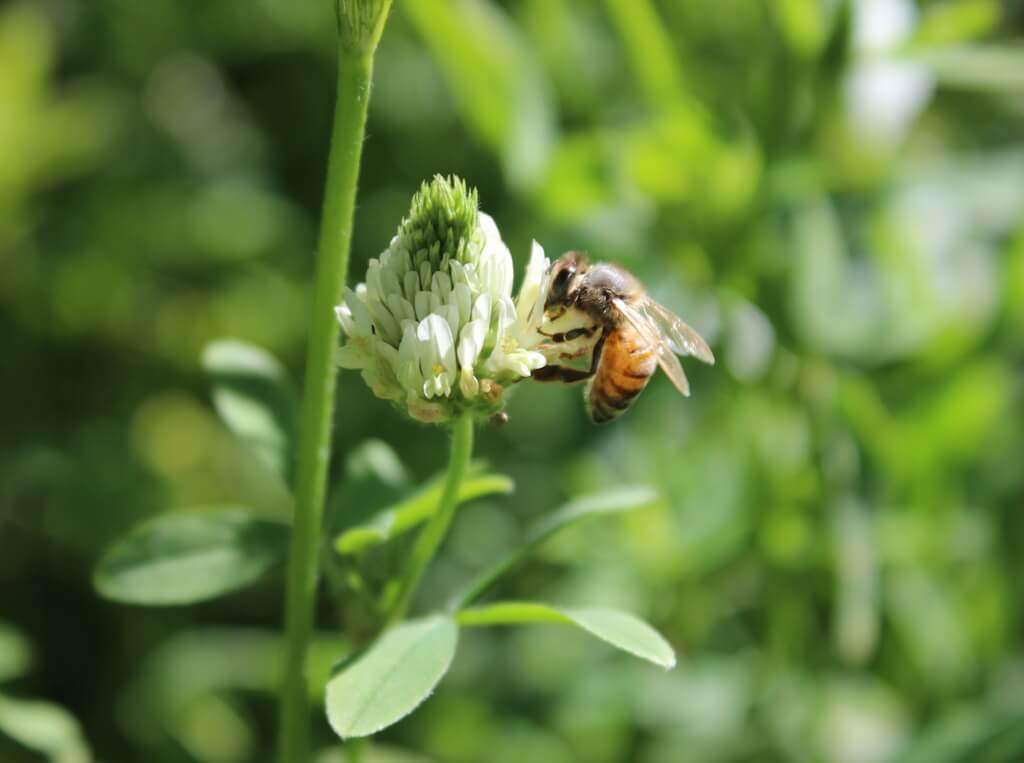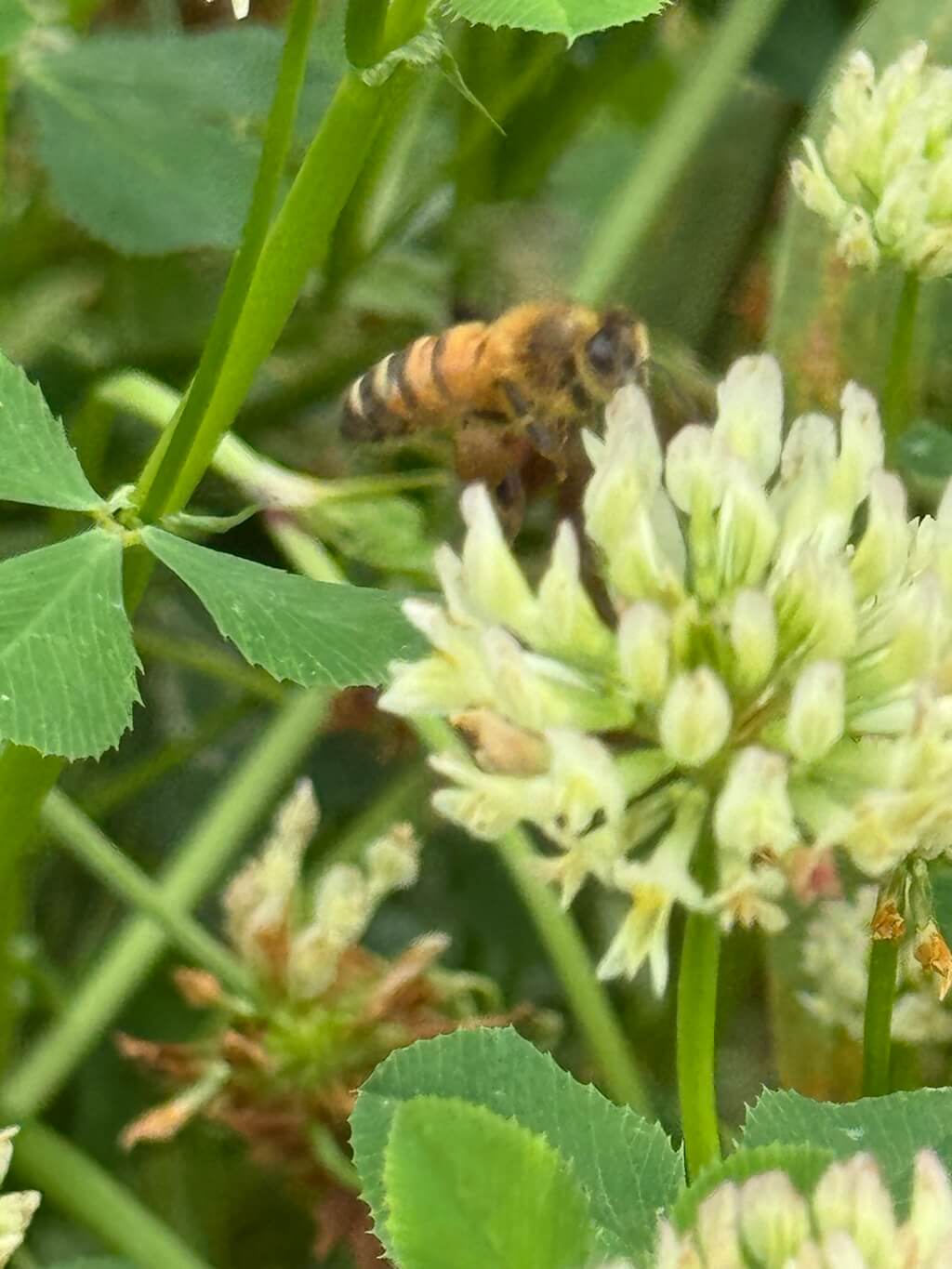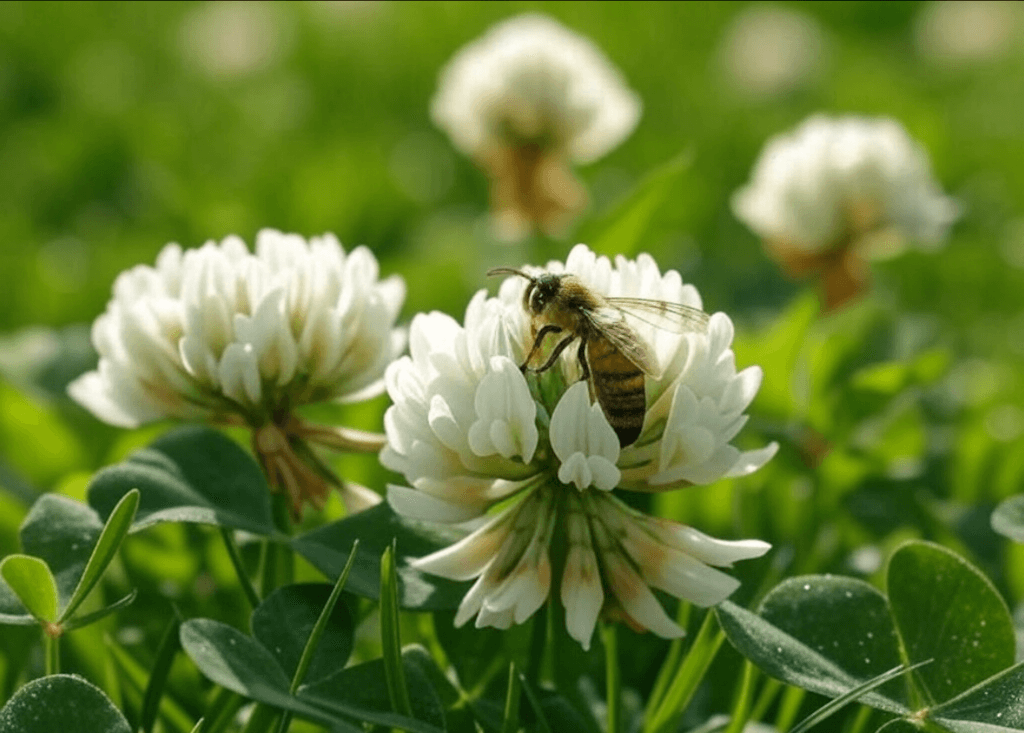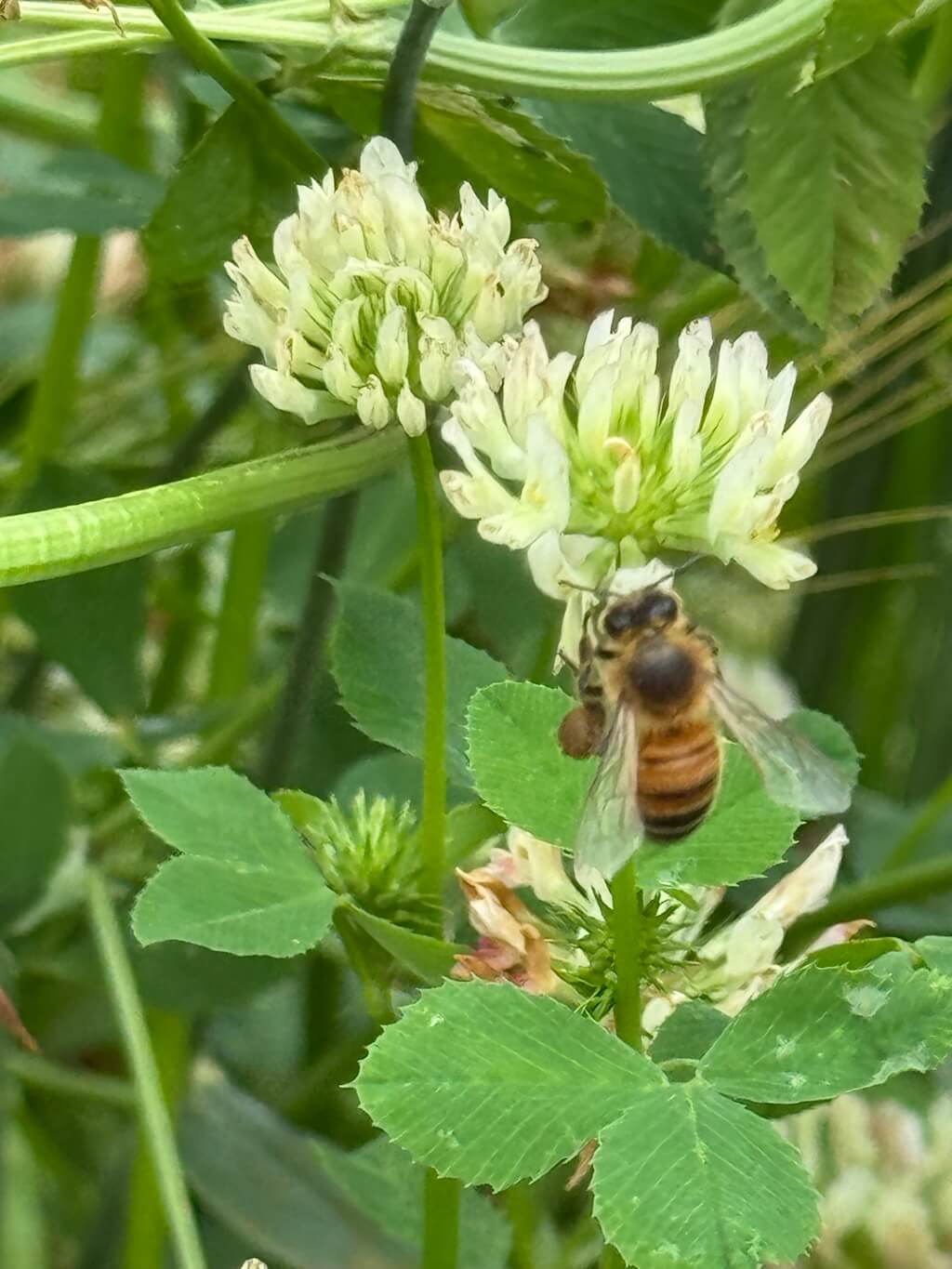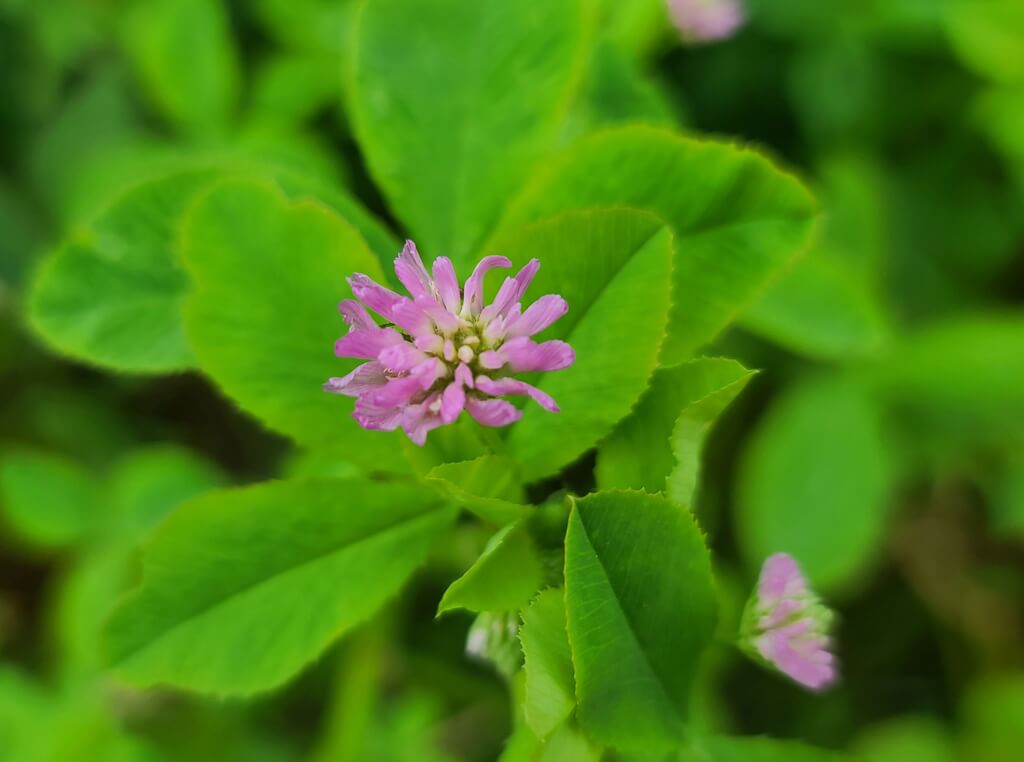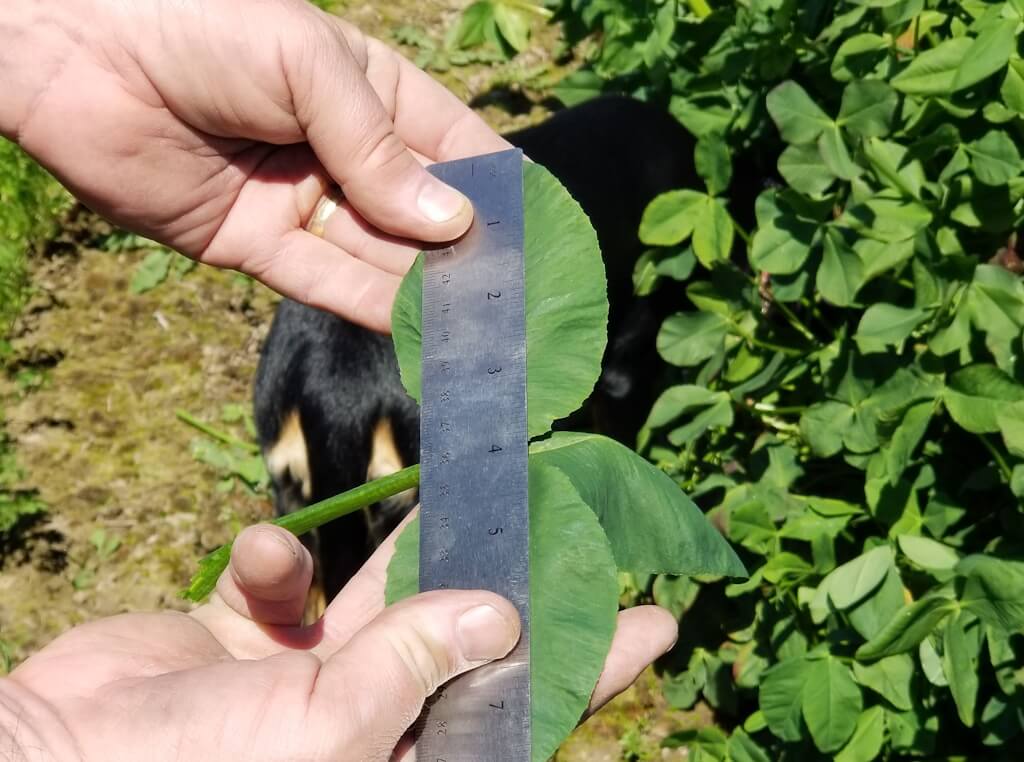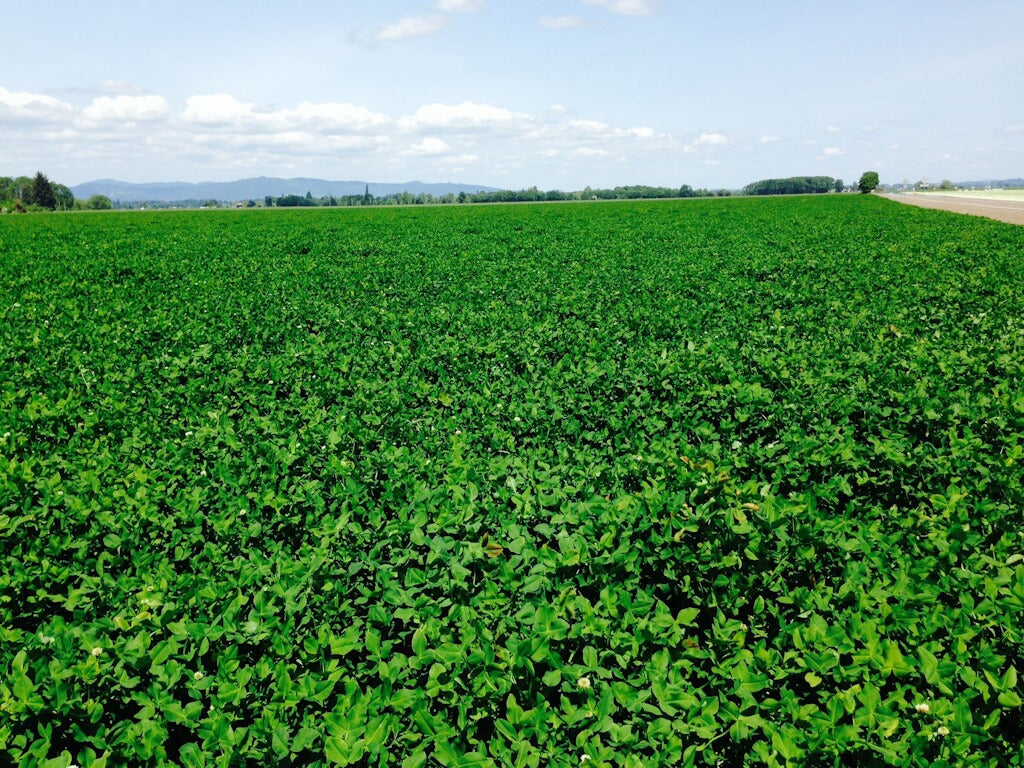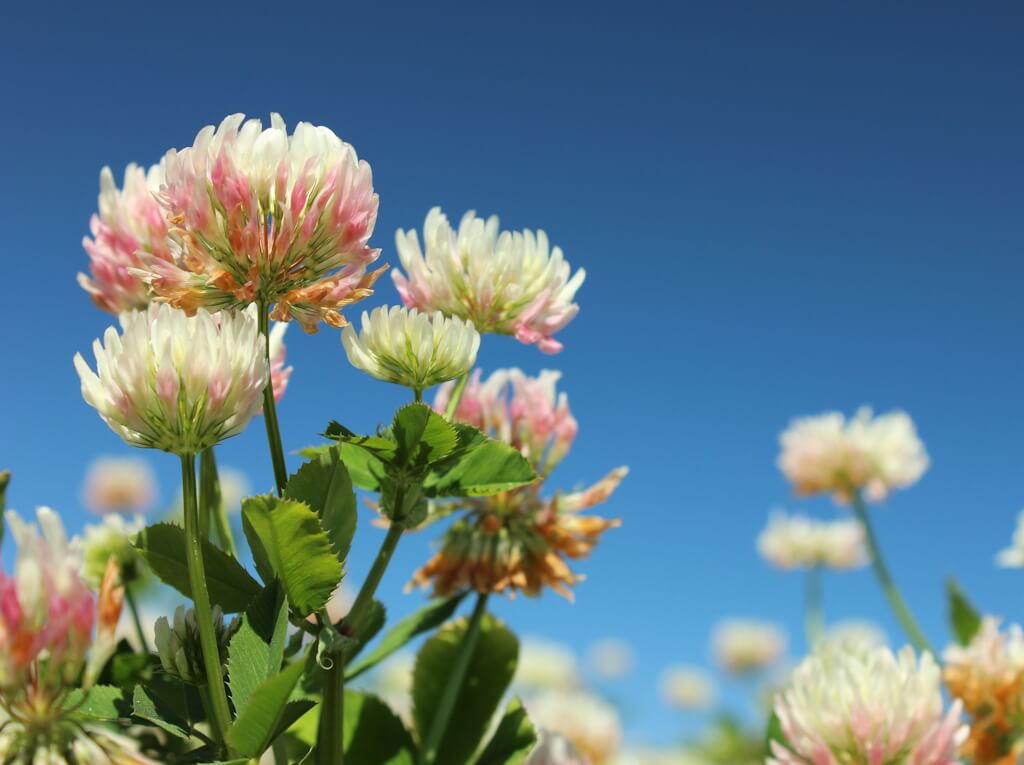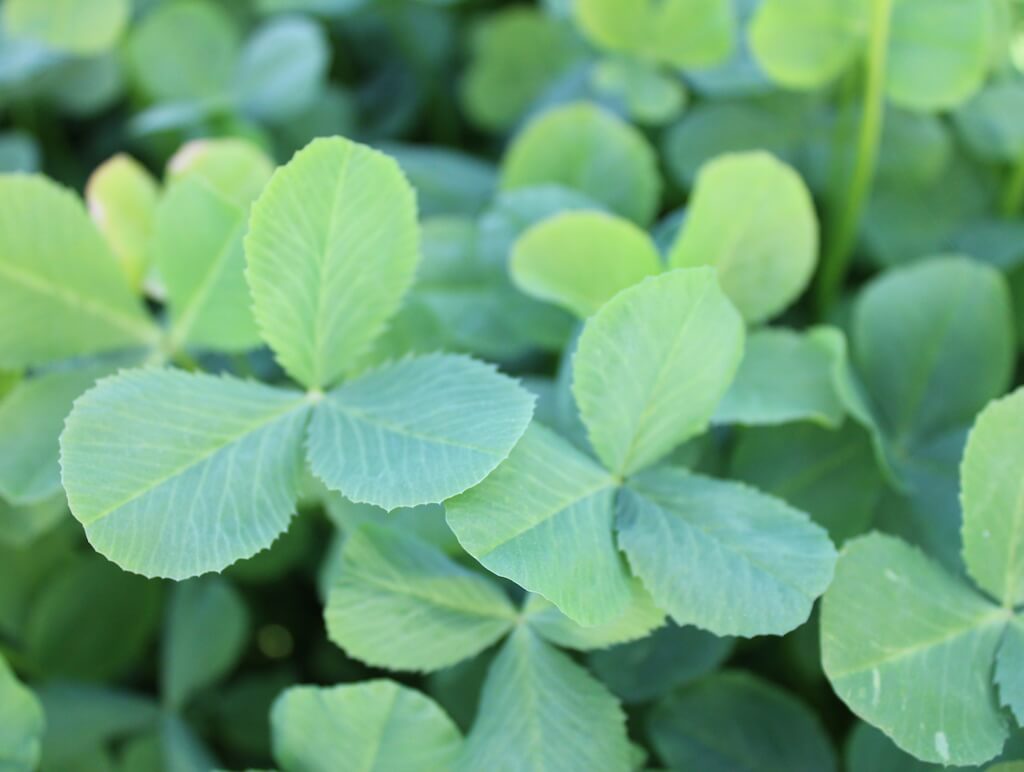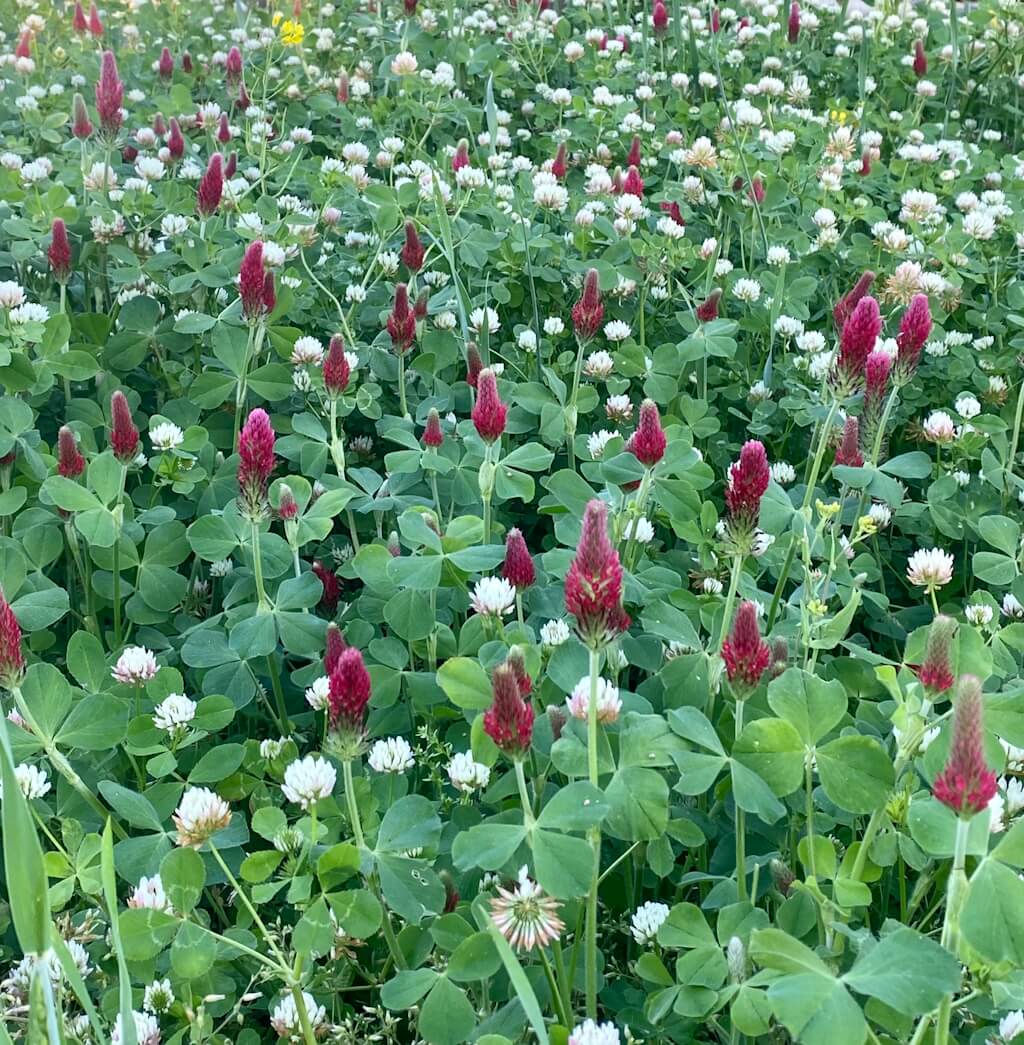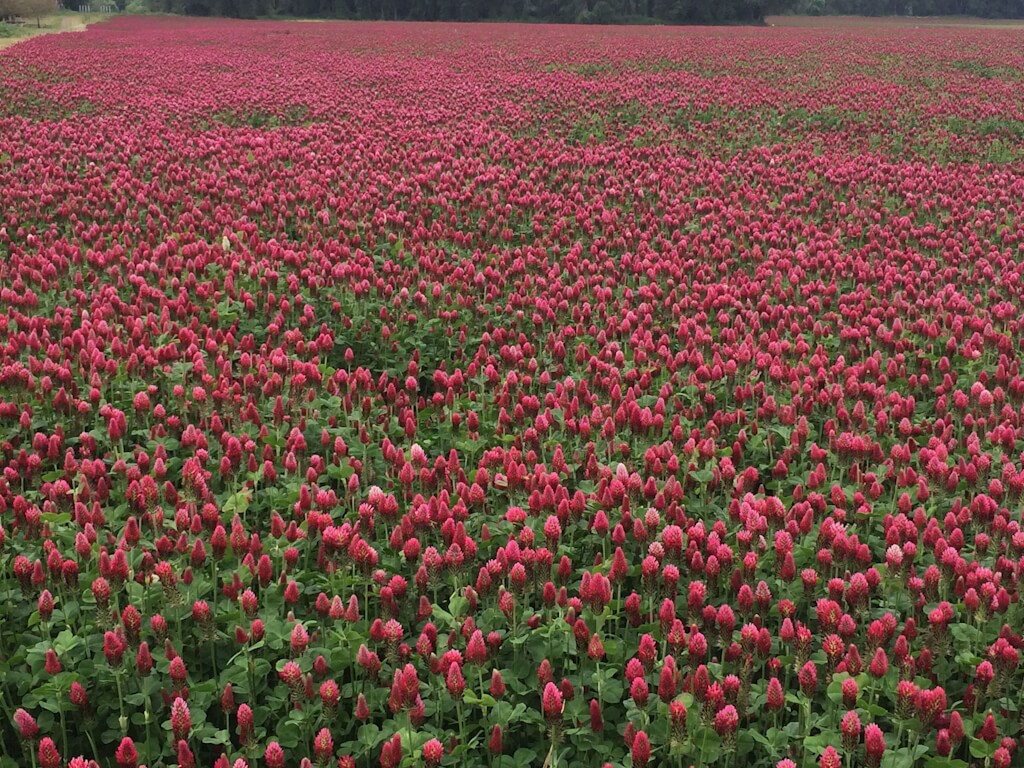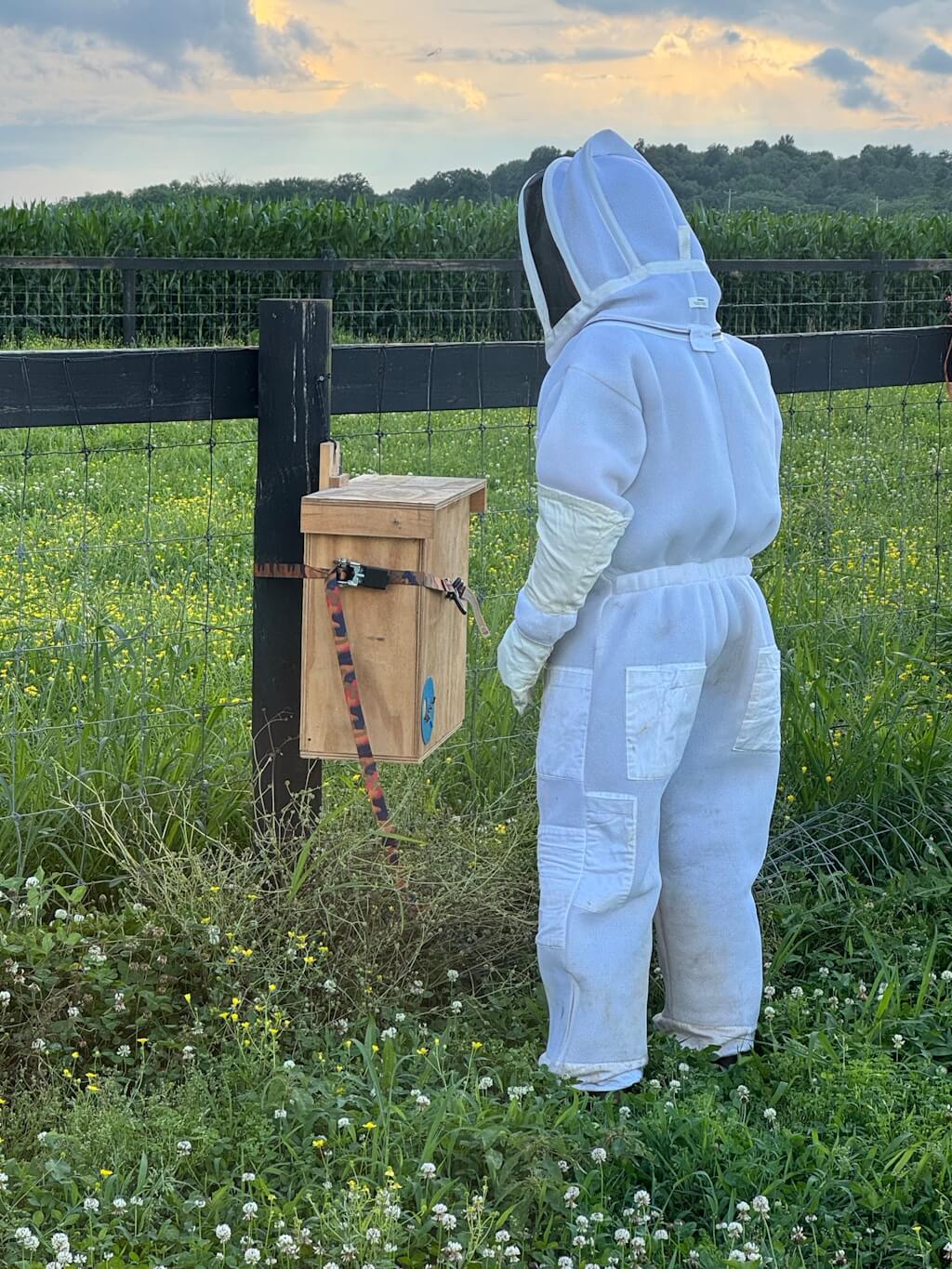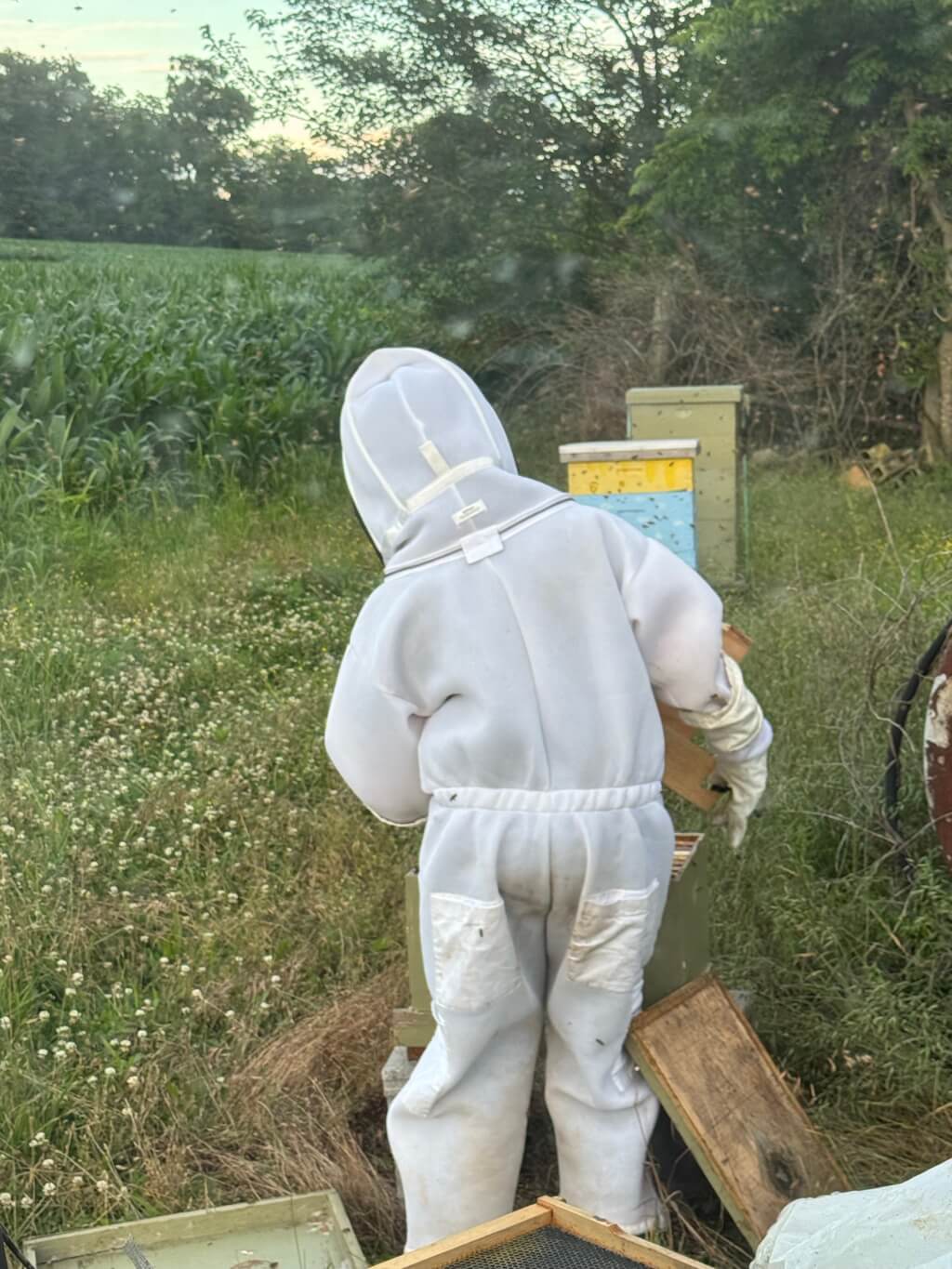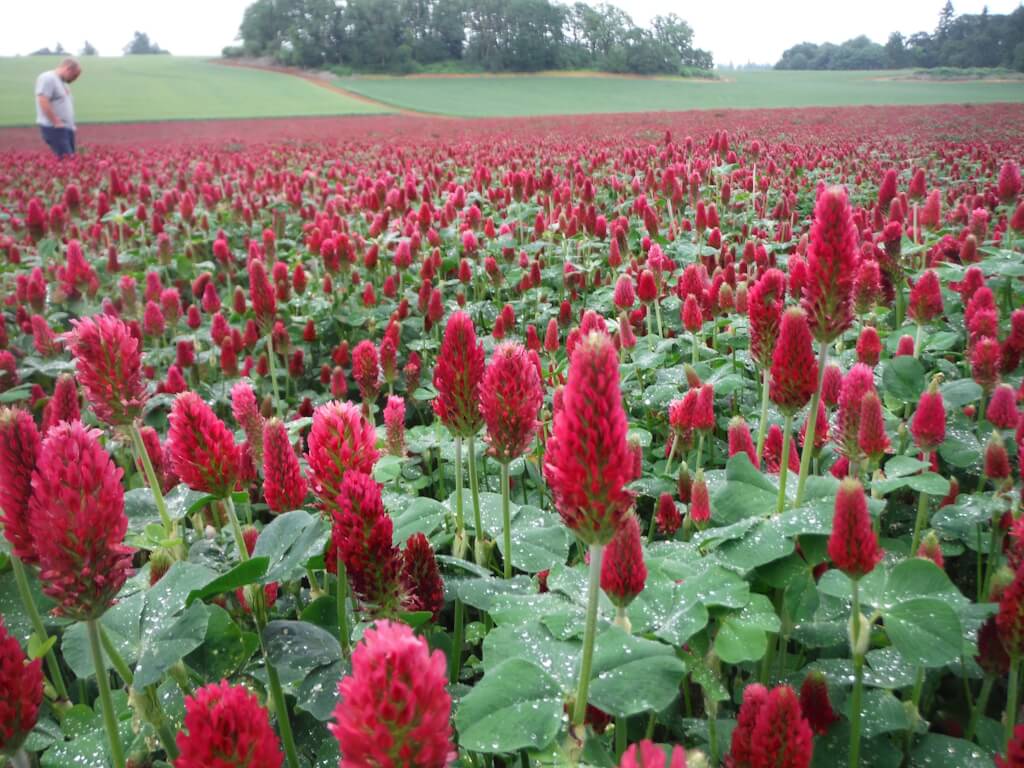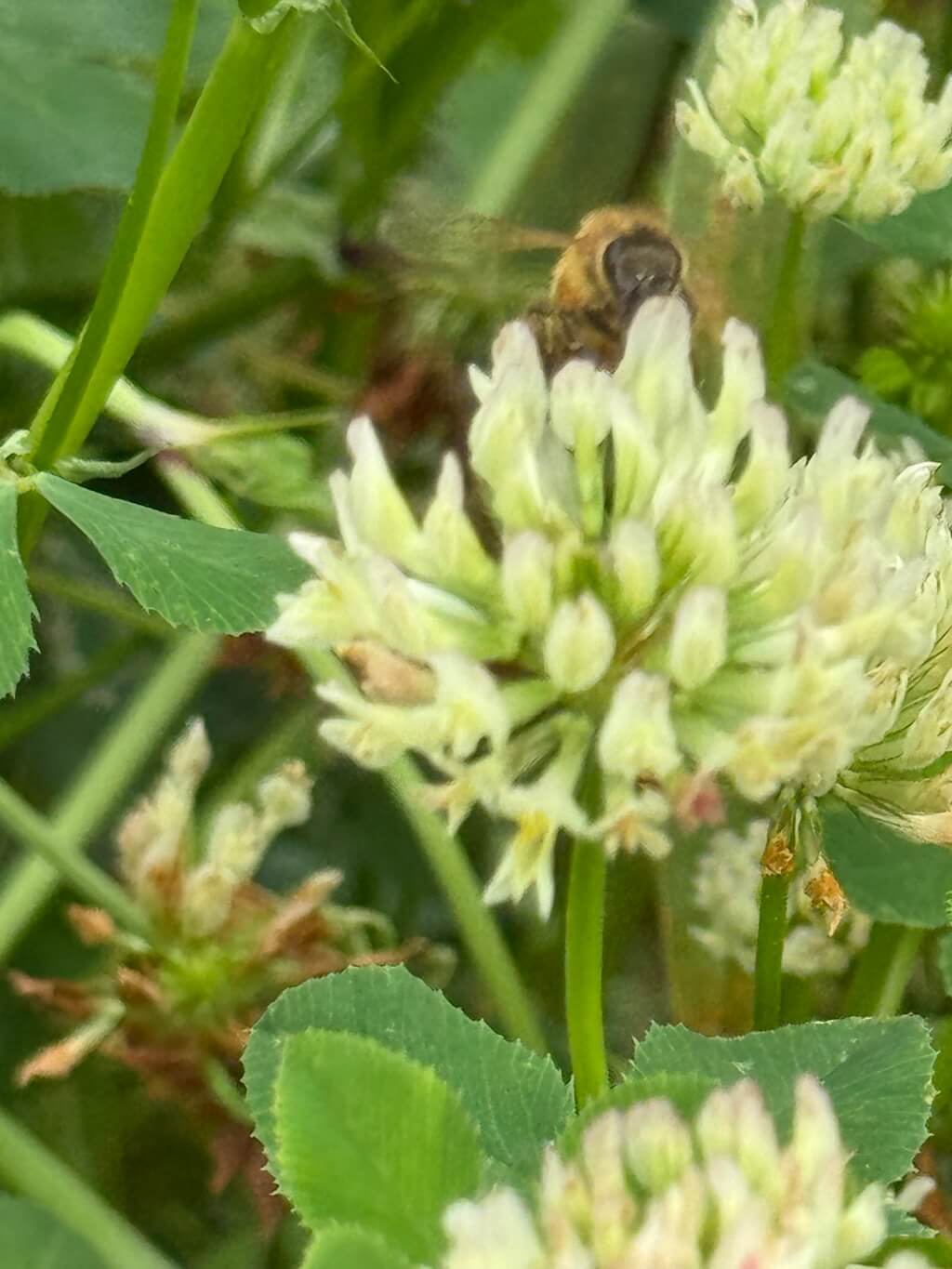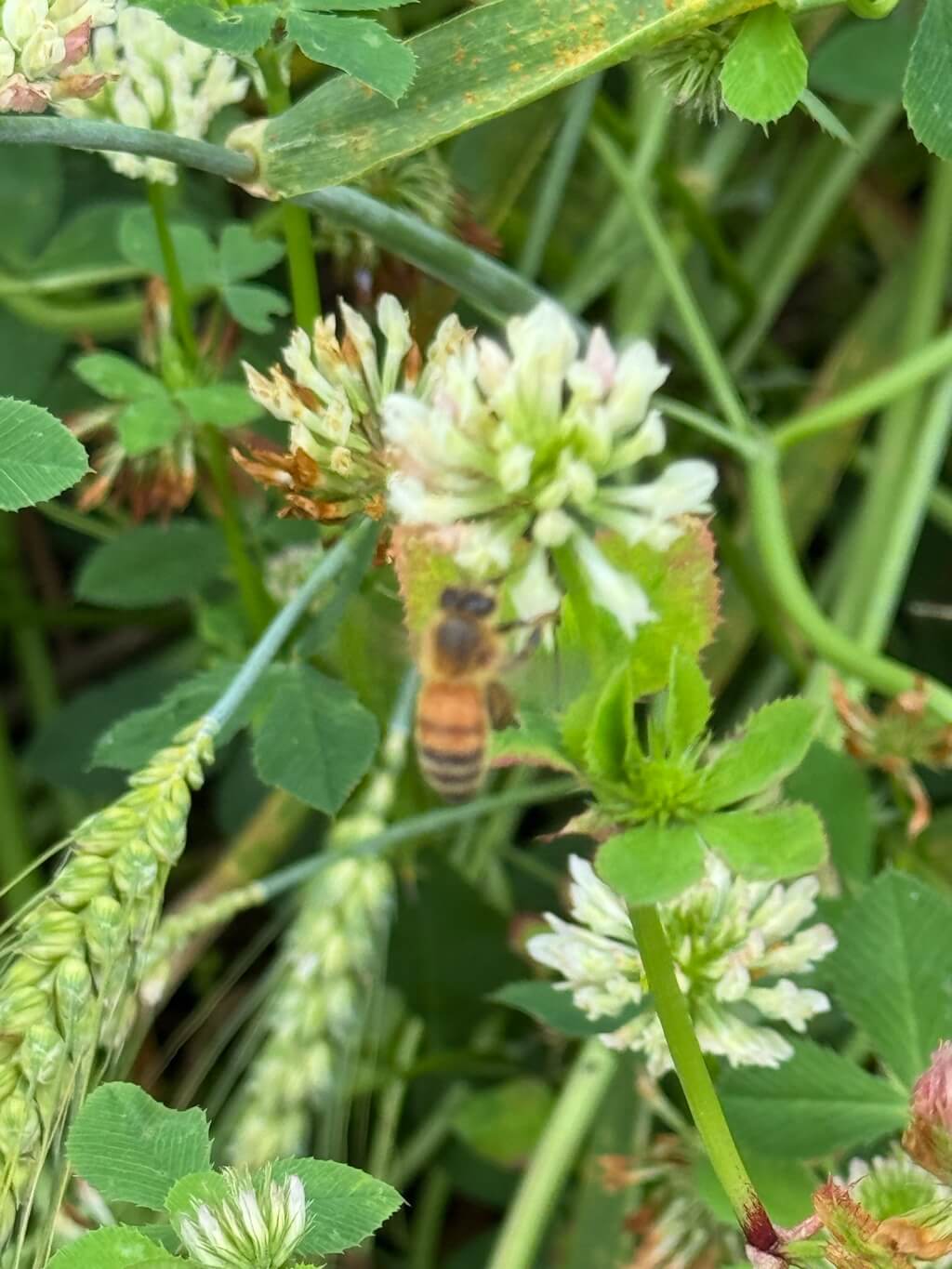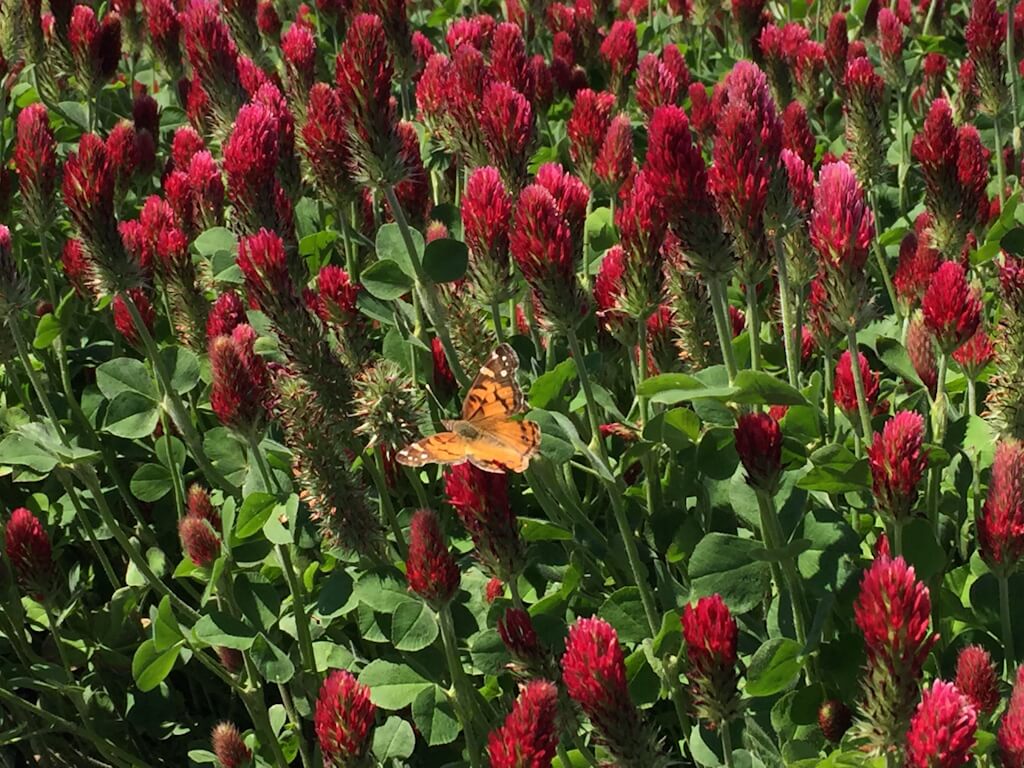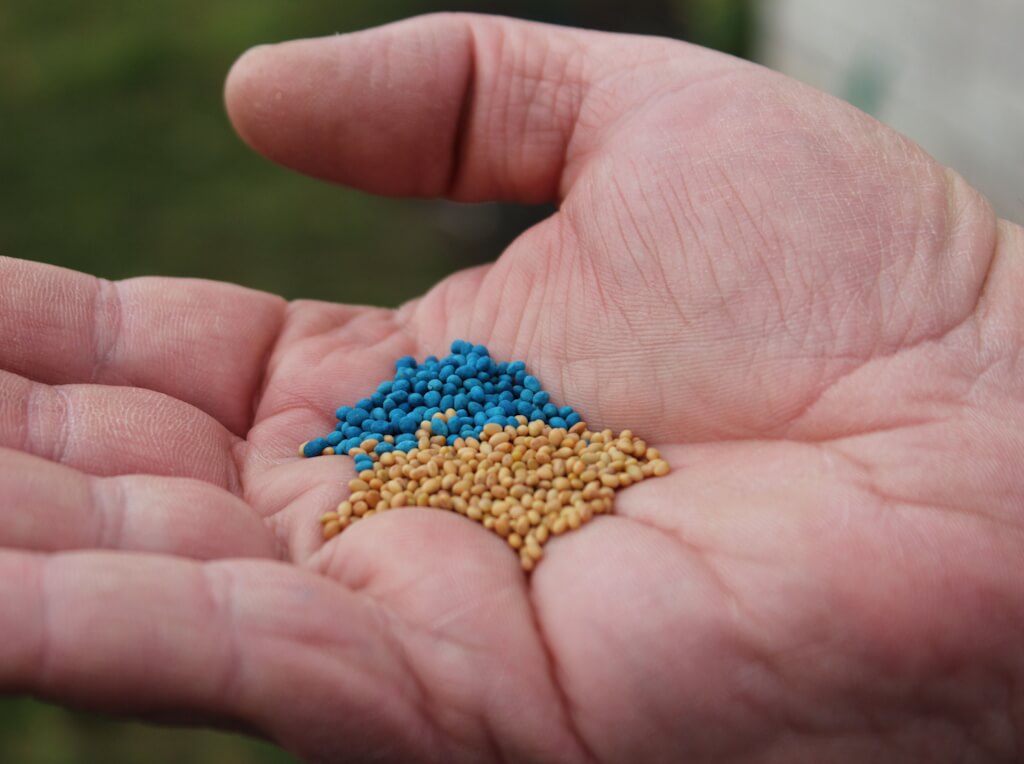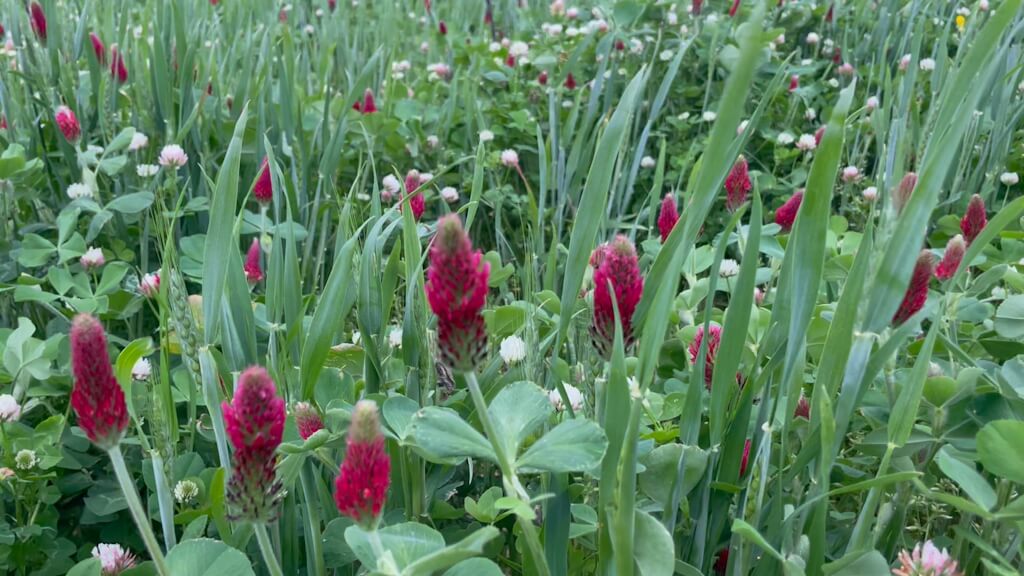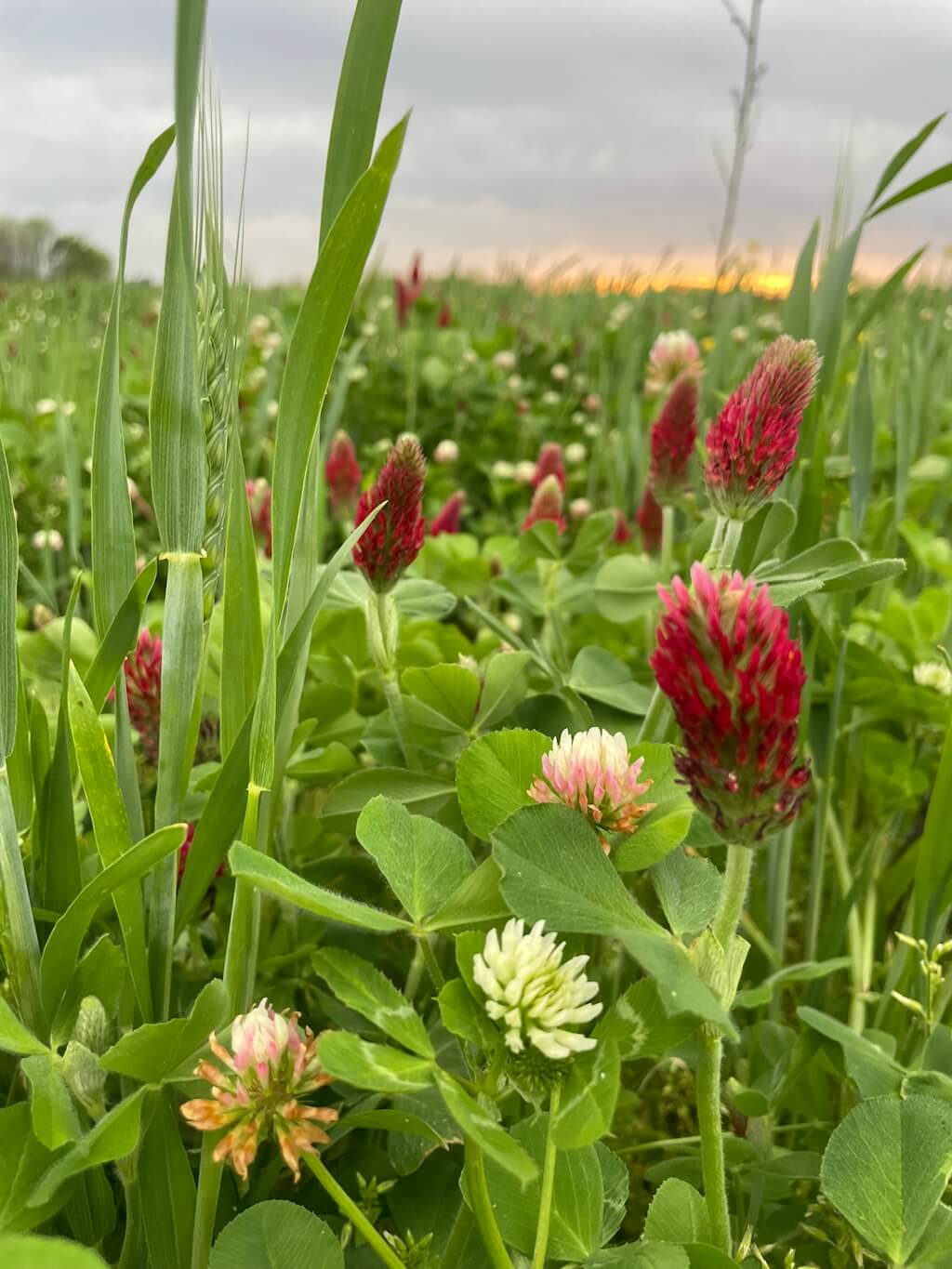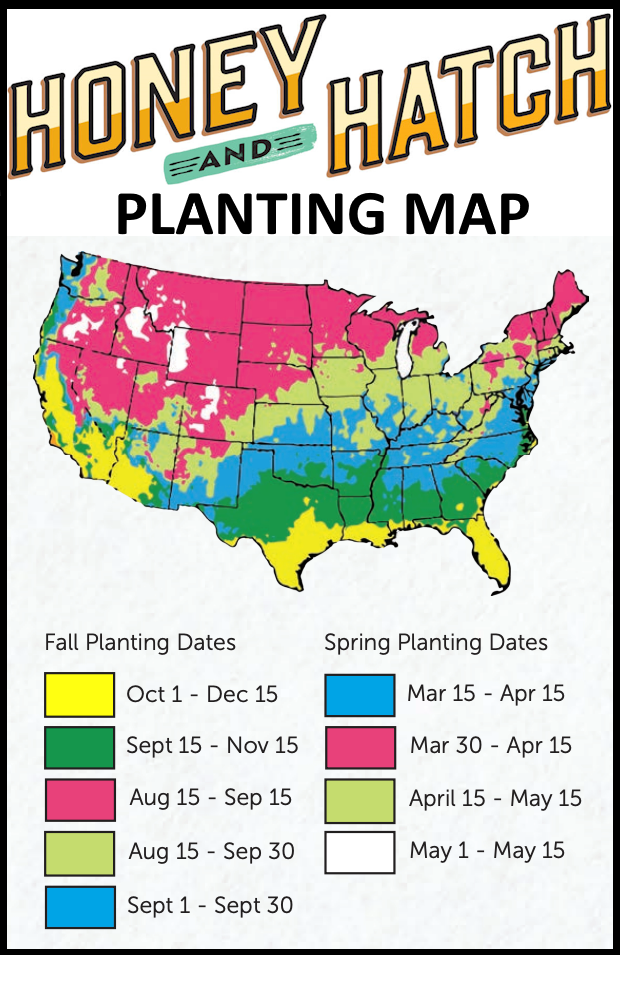
How Clover Can Help Bees Survive Winter – And How You Can Help
Share
- By Tiffany Jenkins, Founder, Honey & Hatch
How Clover Helps Bees Survive Winter & Strengthen Colonies
Learn how planting premium clover mixes supports honeybees, builds strong winter colonies, and restores pollinator health. Boost forage & protect bees today!
Why Bees Struggle Through Winter
Beekeepers, gardeners, and conservationists all understand how vital honeybees and native pollinators are. Yet every winter, millions of bees die — not from the cold itself, but from starvation, disease, and exhaustion due to poor forage conditions throughout the growing season.
Modern landscapes — dominated by lawns, pavement, and monocultures treated with pesticides — offer little high-quality forage. Without enough nectar and pollen during summer and fall, bee colonies enter winter underfed and vulnerable.
The Problem: Weak Overwintering Colonies
To survive winter, bees need:
- Strong colony numbers
- Ample honey stores
- A population of healthy “winter bees”
Without enough summer and fall forage:
- Colony populations drop
- Honey reserves fall short
- Bees become susceptible to disease and parasites
- Hives may not generate enough warmth to survive the cold
This leads to heartbreaking winter losses for beekeepers and fewer spring pollinators for gardeners and farmers.
For beekeepers, this means heartbreaking winter losses — and expensive spring restocking. For gardeners and conservationists, it means fewer pollinators in spring to support ecosystems and crops.
The Solution: Clover & Cover Crop Mixes
Planting premium clover seed blends in your garden, pasture, or yard is one of the simplest and most effective ways to help bees thrive — through summer, fall, and all the way into winter.
Why Clover?
- It blooms continuously through the growing season
- Produces abundant nectar and protein-rich pollen
- Grows cleanly without harmful chemicals
- Nourishes both honeybees and native pollinators
How Clover Strengthens Bee Colonies
Extends Forage Season
Our proprietary blend includes crimson, berseem, balansa, and Persian clovers, chosen for their staggered bloom times:
- Crimson: Blooms early spring
- Berseem & Balansa: Mid-to-late spring through summer
- Persian: Extends forage into late summer
This continuous bloom reduces the "nectar dearth" and supports stronger colonies year-round.
Builds Stronger Winter Bees
Honeybees raised in late summer and fall — called “winter bees” — have a longer lifespan and are responsible for keeping the colony alive until spring.
Clover’s protein-rich pollen and nectar help nourish these winter bees so they can survive the long months ahead.
Boosts Honey Production
More nectar = more honey. Clover helps bees store the reserves they need before winter. Plus, clover honey is light, mild, and loved by consumers.
Provides Clean, Safe Forage
Unlike many crops, clover doesn’t require pesticides or herbicides — giving pollinators a safe and healthy food source.
Why Choose Honey & Hatch’s Premium Clover Mix?
Our proprietary blend of crimson, berseem, balansa, and Persian clovers has been developed specifically with pollinators and soil health in mind.
Our Beekeeper’s Blossom mix is tailored for pollinator health and soil regeneration. Each clover variety plays a unique role:
|
Clover Variety |
Bloom Time |
Key Benefits |
|
Crimson |
Early spring |
Bright red blooms, early forage, enriches soil |
|
Berseem |
Mid-spring–summer |
High protein, cold-tolerant, fast-growing |
|
Balansa |
Late spring–mid-summer |
Cold-hardy, nitrogen fixer, persistent blooms |
|
Persian |
Spring–summer |
Late-season forage, tolerates wet soil |
Together, these create a long-blooming, pollinator-friendly oasis in any landscape.
Bonus Benefits: Clover Improves Your Land
Clover isn’t just for bees — it’s great for your soil and property too.
Prevents Soil Erosion
Dense clover roots hold soil in place, even on slopes.
Fixes Nitrogen
Clover naturally adds nitrogen to the soil, reducing fertilizer needs.
Suppresses Weeds
Thick growth crowds out weeds and reduces maintenance.
Restores Soil Health
Adds organic matter, boosts microbial life, and builds structure for better plant growth.
Who Should Plant Clover?
This is a smart, sustainable choice for:
- 🐝 Beekeepers boosting hive health and honey yields
- 🌍 Conservationists reversing pollinator decline
- 🌼 Home Gardeners attracting bees & butterflies
- 🌾 Landowners restoring degraded soil
- 🌱 Anyone looking to support biodiversity and pollinators
How to Plant Clover in Your Backyard
You don’t need a tractor or acreage. Follow these easy steps:
Step-by-Step Guide
1. Step 1: Prepare Your Soil
Remove existing weeds & loosen soil surface with a rake or tiller. Seed can also be spread with a hand seeder directly on the ground.
2. Step 2: Choose the Right Time
Plant in early spring or fall when the soil is moist & temperatures are mild.
3. Step 3: Spread the Seed
Broadcast seed evenly over your prepared area. You can even overseed into an existing lawn.
4. Step 4: Water Lightly
Keep soil moist until seedlings are established.
5. Step 5: Enjoy!
In just a few weeks, you’ll see lush clover sprouting — and soon after, bees enjoying your blooms.
Your Small Step = Big Change
When you plant clover, you’re doing much more than creating a beautiful yard or healthy soil. You’re:
🌸 Giving bees the fuel they need to survive the winter.
🌸 Supporting pollinators that keep our food supply secure.
🌸 Reducing your environmental footprint with natural soil enrichment.
🌸 Restoring biodiversity to your little corner of the world.
Even a small patch of clover can provide thousands of blooms and support countless bees — proving that big changes start with small, thoughtful actions.
Frequently Asked Questions
Q: Why are honeybee colonies weaker in winter?
A: Bees need honey & strong winter bees to survive, but lack of forage in summer & fall leaves them undernourished and vulnerable.
Q: Does clover really help bees build honey reserves?
A: Yes — clover produces abundant, high-quality nectar that bees convert into honey, helping them fill their combs before winter.
Q: Is clover safe for native bees too?
A: Absolutely — bumblebees, solitary bees, butterflies, and other pollinators all benefit from clover’s nectar & pollen.
Q: Can I plant clover in a small garden?
A: Yes — even a small patch provides meaningful forage and improves your soil.
Q: Do I need to mow clover?
A: Optional — light mowing after bloom can encourage new growth, but many people leave it for bees to enjoy.
Ready to Help Bees Survive This Winter?
Don’t wait for another season of weak colonies and struggling pollinators.
Plant Honey & Hatch’s Beekeeper’s Blossom, our premium clover seed mix today and watch your backyard come alive with blooms, buzzing bees, and healthier soil.
🌸 More blooms.
🐝 More bees.
🌱 Healthier soil.
It all starts with a seed.
